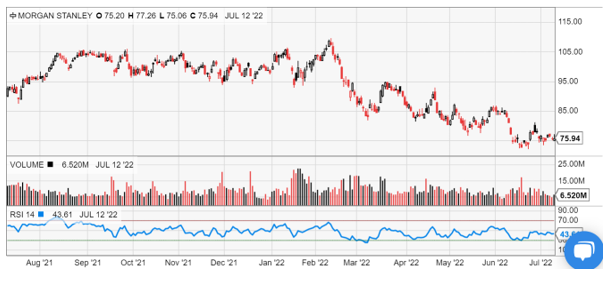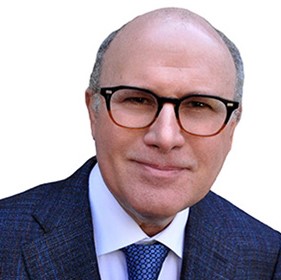Venture capital investors are taking a beating and the fallout is going to ripple throughout the investment banking industry in a big way.
The Financial Times reported Monday that Klarna, once Europe’s most valuable private tech company, raised capital recently at a $6.67 billion valuation. That’s down from $46 billion a year ago.
The haircut is extremely bad news for investment bankers Morgan Stanley (MS) and Goldman Sachs (GS). But we need to look at the bigger picture to understand the whole story.
The past 12 years have been very lucrative for well-heeled investors and their financial institutions.
Related Post: Pathway to Tech Turnaround
Venture capital, private equity investors and investment bankers have been on a record run fueled by historically low borrowing costs, and a strong appetite among investors for new publicly listed companies.
Venture capitalists fund disruptive startups that have the potential to grow fast. The VC provides funds in exchange for a stake in the fledgling company.
However, VCs don’t usually put up their own cash. The money comes from wealthy individuals, corporations or institutional investors such as pension funds, private equity groups and investment banks.
The rub is VC investing is supposed to be risky. After all, the target companies are smaller disruptive startups with bigger ideas than profits.
Investors should be genuinely skeptical about success. But since 2010, that simply has not been true. Private company valuations soared into the stratosphere in anticipation of lucrative initial public offerings. Those IPOs didn’t disappoint, either.
Affirm Is a Prime Example
Affirm Holdings (AFRM) is a money-losing, financial technology company. Founded in 2012, the business allows customers to buy products now and pay later.
The San Francisco, California-based BNPL firm, in 2017 raised $150 million at a $1.5 billion valuation. When shares were publicly listed four years later at $38, underwriters valued the business at $9 billion. The stock price soared to $176 in November, a market capitalization of $53 billion, despite $548 million in annualized losses.
VCs, PE firms, investment bankers and even Ashton Kutcher, an early investor, all made out like bandits. Those good times appear to be over, perhaps for a generation.
Klarna shares a lot in common with Affirm. The Swedish BNPL company was founded in 2005 and quickly gained favor with the private investor class. As the largest fintech on the continent, valuations to $5.5 billion in 2019, then $47 billion last year.
Executives announced on Monday the company raised $800 million from investors including the Canada Pension Plan Investment Board and Mubadala, the sovereign wealth fund of the United Arab Emirates. Unfortunately, the investment pegs Klarna’s value at only $6.7 billion.
The collapse of valuations in emergent tech is a big problem for the financial firms that move money around and collect fees.
It’s going to be much harder to earn good returns for shareholders without big paydays in the public markets.
Morgan Stanley and Goldman Sachs are two of the most important investment banks in the world.
Their bankers have been in the middle of the biggest deals and have shaped generational change across sectors. However, the world isn’t going back to the easy money policies and the investor enthusiasm of the past decade any time soon.
Related Post: Three Arrows, One Big Mess
The Federal Reserve is aggressively raising short term interest rates to fight inflation. An entire generation of young investors have been lost in a tech bubble that was promoted by VCs, PE firms and investment bankers.
Bearish investors often worry about a lost decade for tech. But investment banking is far more vulnerable.
Reflating the ecosystem about private company valuations, IPOs and fervent investors will be a herculean task. That environment was an immense source of profits for Goldman and Morgan Stanley.
There were 232 IPOs in 2019, and 480 a year later. At the close of 2021, the number of new issues skyrocketed to 1,035, an all-time record. Thus far in 2022, only 125 IPOs have come to market.
Morgan Stanley and Goldman Sachs could easily trade back to $53.20 and $217.60, respectively.
Best wishes,
Jon D. Markman
P.S. Martin and early-stage investor Chris Graebe are going on the air next week to show how staggeringly profitable private market deals can be and how to get first access to one private deal for Weiss Members this July. It’s a groundbreaking concept, and if you’d like more information, check this out.


